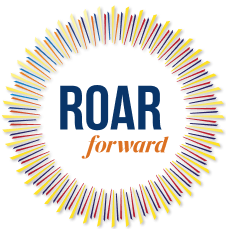You had a very long successful career in the advertising world, including stints as the CEO of North Asia and the Asia Pacific region for J. Walter Thompson Worldwide. Twenty years in China made you a leading expert in Chinese consumer psychology. In 2020, you started a new professional journey into social work. How did that decision come about for you?
I used my desire to understand people during a long career in marketing and advertising. I spent 22 years based in Asia, mostly Shanghai, where I led the world’s largest agency across Asia-Pacific. I was able to run a values-driven organization in which people were encouraged to express their ideas, a difficult challenge in Asia where American-style individualism is “dangerous” and employees are taught to obey bosses. I was able to hone my conceptual skills and critical thinking every day. I became a thought leader on Chinese psychology and marketing to Chinese consumers, the focus of three books I published.
I did not leave marketing as much as marketing left me. The digital revolution changed the profession beyond recognition. Insight has been replaced by algorithms. Industry leaders once admired for creative vision and intellectual curiosity have been replaced by data miners. Digital “natives” run the show. In 2019, after three years swimming against the tide working at a consulting firm, I called it quits.
In 2016, I returned to the United States. I labeled myself a “generational immigrant,” an American who had become unfamiliar with the crosscurrents of his own country. Only after I planted myself in New York – and dove into the incredible array of subcultures – could I really feel the changes taking place in society. I am humbled by the challenges and strengths of marginalized groups. I developed a desire to improve lives by connecting with people. For this reason, I applied to get a Masters of Social Work at New York University.
You completed a second master’s degree In Social Work at NYU and are currently enrolled at the National Institute of the Psychotherapies in New York City. Tell us how you plan to Reimagine your professional life with these new credentials?
I am in the process of acquiring my “supervised clinical hours” at both the Jewish Board, New York’s largest mental health agency, and the National Institute of the Psychotherapies, a psychoanalytic Institute where I will earn a certification in psychoanalysis. I see approximately 30 clients per week. I will open my private practice in 2025.
I have been pleasantly surprised that my previous experience – mentoring staff and connecting with a myriad of different clients – is fundamental to what I do now. It has been and continues to be about re-imagining the possibilities people have in their lives.
The training I am receiving is not about profit. It’s about embracing a framework of human behavior, much of which is unconscious, in order to establish a deep therapeutic alliance with a vast array of people, from 14-year-old trans girls to 80-year-old isolated men. The magic takes place between me and another soul, in the room. It is intensely private. I am not longer a public figure. However, the rewards of helping people move forward with their lives in productive, new ways is even more satisfying that my days on the “corporate stage.”
What wisdom would you give to people about taking an entirely new direction in the second half of their lives, especially if they don’t know where to start?
Know thyself. Look deep into who you are and what gives you satisfaction and start from there. The time for bolstering ourselves through external (societal) acknowledgement – from parents to professional peers – has hopefully passed once we enter a later life stage. My goal is now to connect with something greater – bigger, more meaningful – than when I bowed to the dictates of society’s definition of success. Power is less potent than love.

